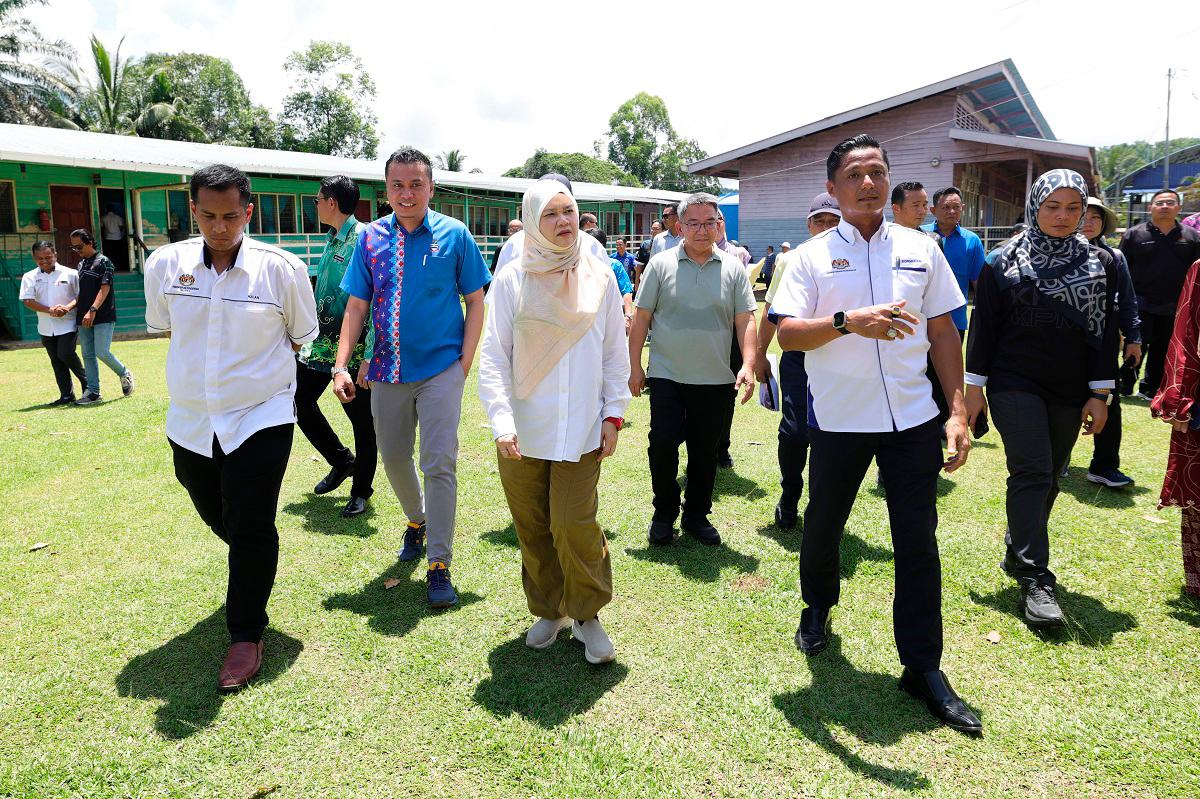KALABAKAN: The Ministry of Education (MOE) has acknowledged the ongoing issue of limited or non-existent internet access in school areas, particularly following the launch of the digital education policy.
Its minister, Fadhlina Sidek, said the challenges faced by schools, especially in rural areas, cannot be overlooked and remain a key priority for the MOE.
To address this, she said, the ministry has introduced the Parliamentary Follow-up Programme, which involves visits to affected locations to assess the situation firsthand.
“We at MOE are fully committed, and with the support of the Ministry of Communications, we are consistently working to improve internet access and connectivity in schools.
“There are many initiatives and support programmes from the Ministry of Communications to complete the digital ecosystem,“ she told reporters in conjunction with her two-day working visit under the Parliamentary Follow-up Programme, which ended today.
Fadhlina, accompanied by Kalabakan Member of Parliament Datuk Andi Muhammad Suryady Bandy, visited two schools in the Kalabakan parliamentary constituency, namely Sekolah Kebangsaan Ulu Kalabakan and Sekolah Kebangsaan Kalabakan, as well as a project site for the construction of an additional building for Sekolah Kebangsaan Umas.
Meanwhile, Fadhlina said the ministry would ensure that every school gets smartboards and tablets to facilitate the teaching and learning process in schools.
“This is to encourage and enhance the children’s learning experience in the classroom, making it more interactive, while ensuring our children are not left behind.
“Sabah is among the states where digital adoption at the teacher level is very encouraging. We want teachers with these skills to ensure their students also gain access to digital facilities and skills. I think we have a teacher activity centre that can be fully utilised to conduct digital programmes and activities,“ she said.
Meanwhile, Fadhlina reminded teachers to emphasise ethical practices in the use of technology and digital tools, ensuring that students use them wisely and are able to differentiate between educational content and materials that could negatively influence their morals.
Meanwhile, Andi Muhammad Suryady thanked the Ministry of Communications for ensuring that the people get quality internet access, especially in school areas.
He said broadband services through the National Digital Network (JENDELA) initiative play a key role in attracting telecommunications network providers to expand coverage, especially in rural areas.
Infrastructure development and upgrading of basic telecommunications networks are important to accommodate the needs of the digital lifestyle in this era, he added.









